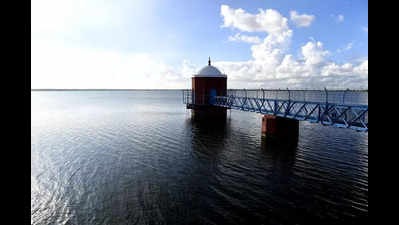
Chennai’s reservoirs have reached a remarkable milestone by holding 10,620 million litres of water, a figure that underscores the city’s effective water management strategies. This achievement comes at a crucial time as the city prepares for its water needs in the upcoming season. The significant water storage level not only reassures residents about the city’s future supply but also highlights the progress made by the Chennai Metropolitan Water Supply and Sewerage Board (CMWSSB) in harnessing natural resources through improved rainfall capture and efficient reservoir management.
Current Water Storage and Its Implications
The latest figures indicate that Chennai’s reservoirs have amassed 10,620 million litres of water, a robust level that plays a pivotal role in ensuring the city’s water security. This impressive volume is a testament to several factors:
- Enhanced Rainfall Capture: Recent monsoonal activity and effective catchment area management have contributed significantly to increasing reservoir levels.
- Efficient Management Practices: The CMWSSB has implemented advanced monitoring and maintenance protocols that have optimized water retention and minimized losses.
- Infrastructure Investments: Continued investment in infrastructure improvements has allowed for better water storage capacity and more efficient distribution networks across the city.
This achievement is particularly noteworthy in the context of urban challenges where water scarcity remains a perennial concern. The current storage level provides a buffer against potential drought conditions and helps in planning for the city’s long-term water demands.
Role of the Chennai Metropolitan Water Supply and Sewerage Board (CMWSSB)
The CMWSSB has been at the forefront of efforts to improve Chennai’s water supply. Their strategic initiatives include:
- Modernization of Reservoirs: Upgrading aging infrastructure and enhancing the capacity of existing reservoirs has been a critical component of their strategy.
- Data-Driven Decision Making: The use of advanced technologies to monitor water levels and forecast demand has enabled more precise management of water resources.
- Public Awareness and Conservation Campaigns: Educating residents about water conservation and promoting efficient usage has also played a significant role in ensuring sustainable water management.
Officials from CMWSSB have expressed optimism that the current water levels will meet the city’s demand, even as seasonal variations continue to present challenges.
Impact on the Local Economy and Daily Life
The robust water storage capacity has far-reaching implications for both the local economy and the daily lives of Chennai residents. Adequate water supply is crucial for various sectors:
- Residential Needs: With a steady supply, households can enjoy uninterrupted access to water for daily use, reducing the stress of water scarcity.
- Agricultural and Industrial Activities: Consistent water levels support local agriculture and provide industries with the resources necessary for uninterrupted operations.
- Economic Stability: A reliable water supply contributes to overall economic stability, promoting growth and attracting investment in various sectors.
The improved water security is also expected to enhance public health and sanitation, further contributing to the quality of life in Chennai.
Challenges and Future Prospects
Despite the positive news, experts caution that continuous efforts are needed to maintain and improve water management practices. Some challenges include:
- Climate Variability: The unpredictability of rainfall patterns due to climate change remains a concern. Ongoing monitoring and adaptive strategies will be essential.
- Urban Expansion: Rapid urbanization poses a challenge to maintaining adequate water storage as the demand for water increases with growing populations.
- Infrastructure Maintenance: Ensuring that all reservoirs and distribution networks are well-maintained is critical for long-term water security.
Moving forward, the CMWSSB plans to continue investing in modern technologies and infrastructure upgrades to further enhance water storage and management. There is also a focus on promoting community involvement in water conservation efforts to ensure that every drop is used efficiently.
Conclusion: A Promising Future for Chennai’s Water Security
The current milestone of 10,620 million litres in Chennai’s reservoirs is a promising indicator of the city’s commitment to sustainable water management. With the proactive efforts of the CMWSSB, Chennai is well-positioned to meet its water needs and secure a stable supply for the future. This achievement not only bolsters confidence among residents and investors but also sets a strong foundation for tackling future challenges in water management.










